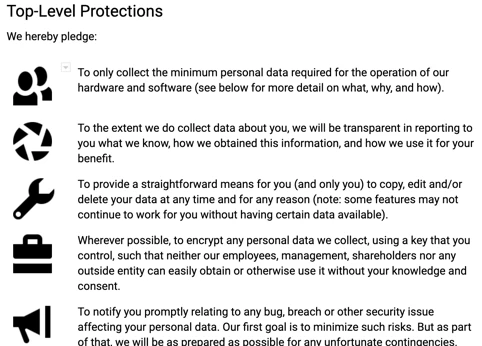Understanding Psychic Privacy Policies: What You Need to Know
As the world becomes increasingly interconnected, many people turn to psychics and medium services for guidance and insight. However, in this digital age, it is crucial to also consider the importance of privacy and the protection of personal information. This article aims to provide a comprehensive understanding of psychic privacy policies and the key elements that should be considered. By exploring the language and terminology used in these policies, as well as the scope and limitations, individuals can make informed choices when choosing a psychic service. Additionally, this article will outline steps to protect privacy during psychic readings, discuss opt-out and consent options, address risks and challenges, and shed light on the legal and ethical considerations that surround psychic privacy.
Contents
- Why are Psychic Privacy Policies Important?
- Key Elements of Psychic Privacy Policies
- How to Interpret Psychic Privacy Policies
- Considerations for Choosing a Psychic Service with Strong Privacy Policies
- Steps to Protect Your Privacy During Psychic Readings
- Understanding Opt-Out and Consent Options
- Risks and Challenges in Psychic Privacy
- Legal and Ethical Considerations
- Conclusion
-
Frequently Asked Questions
- 1. What type of personal information is typically collected during psychic readings?
- 2. Are psychic privacy policies legally binding?
- 3. Can I trust that my personal information will remain confidential during psychic readings?
- 4. How long do psychic services retain my personal information?
- 5. Can psychic services share my personal information with third parties?
- 6. How can I ensure secure communication during online psychic readings?
- 7. Are there any additional steps I can take to protect my privacy during psychic readings?
- 8. Can I opt-out of receiving promotional emails or notifications from psychic services?
- 9. What are the risks of psychic scams and unauthorized use of personal information?
- 10. Are psychics bound by any professional ethics or confidentiality obligations?
- References
Why are Psychic Privacy Policies Important?

In the realm of psychic services, privacy policies play a vital role in safeguarding personal information and ensuring the trust and confidence of clients. These policies outline the commitments and practices followed by psychic platforms and practitioners regarding the collection, storage, and disclosure of user data. By having clear and transparent privacy policies in place, psychic services can address concerns related to data security, confidentiality, and the responsible handling of sensitive information. Engaging in psychic readings often involves individuals sharing personal details, emotions, and life experiences. It is crucial for users to have confidence that their privacy will be respected and protected. Psychic privacy policies provide reassurance to clients that their information will be handled with care and not misused or shared without their consent. These policies may also explain the technologies in place to secure communication channels and protect data from unauthorized access. Understanding and reviewing privacy policies is essential as it empowers individuals to make informed decisions when choosing psychic services. Protecting personal information during psychic readings is crucial, both in traditional face-to-face settings and online platforms, to maintain privacy and confidentiality.
Key Elements of Psychic Privacy Policies

Psychic privacy policies encompass several key elements that are essential for understanding how a psychic service handles and protects user data. These elements can be outlined in a structured manner, such as in an html table or html list for clarity. Some of the key elements include:
1. Data Collection and Storage: This element explains how user data is collected, what types of information are collected, and how it is stored. It may include details about the encryption methods used and the security measures implemented to protect sensitive data.
2. Information Sharing and Disclosure: Psychic privacy policies should clarify under what circumstances user information may be shared or disclosed to third parties. It outlines the purpose of sharing information and the steps taken to ensure the privacy of the shared data.
3. Third-Party Involvement: This element delves into any involvement of third-party services or tools within the psychic service platform. It discloses if any third-party analytics or advertising services are used and their impact on privacy.
4. Language and Terminology: Privacy policies often contain legal language and terminology that may be difficult to understand for the average user. This element highlights the importance of clarifying these terms and providing explanations to ensure transparency and comprehension.
5. Scope and Limitations: By including this element, psychic privacy policies define the scope of the policy, specifying the rights and limitations pertaining to the use and protection of user data.
Understanding these key elements is crucial to assessing the privacy practices of a psychic service, whether it is an online platform or a traditional face-to-face psychic reading. Being aware of what information is collected, how it is stored, and how it is shared will enable individuals to make informed decisions and take necessary steps to protect their privacy during psychic readings. For further guidance on protecting privacy during online psychic readings, please check out our article on protecting privacy during online psychic readings.
Data Collection and Storage
Data collection and storage are essential aspects of psychic privacy policies. When engaging with psychic services, users may provide personal information such as their name, date of birth, contact details, and specific questions or concerns. Psychic privacy policies should clearly outline the types of data collected and the purposes for which they are gathered. This may include information required to personalize readings, communicate with clients, or maintain accurate records. The policies should specify how long the data will be retained and the measures in place to protect it from unauthorized access or loss. Adequate security protocols, such as encryption and secure servers, should be detailed to assure users that their information is kept confidential. Additionally, the policy may address the use of cookies or other tracking technologies on the psychic platform’s website. Users should have the right to understand how their data is collected and stored, and should be informed if any third parties are involved in data processing. For face-to-face psychic consultations, where data is typically shared verbally, policies should clearly define the use of recording devices or note-taking. Maintaining privacy and confidentiality during face-to-face psychic readings is equally important, and individuals can learn more about it in our privacy guide for face-to-face psychic consultations.
Information Sharing and Disclosure
- Third-Party Involvement: One important aspect of psychic privacy policies is the disclosure of any third-party involvement in data sharing and processing. This may include trusted partners or service providers who assist the psychic service in delivering their offerings. The privacy policy should clearly state which types of information are shared with third parties, the purpose of sharing, and the steps taken to ensure the security and confidentiality of the shared data.
- Data Compliance and Legal Obligations: Privacy policies should address any legal obligations or requirements for data sharing and disclosure. This includes compliance with relevant laws and regulations, such as data protection or privacy laws. It is essential for the psychic service to outline the scenarios under which they may be compelled to share user data, such as in response to a court order or government request.
- User Consent: A transparent and trustworthy psychic service will provide users with options for consent related to information sharing and disclosure. This allows individuals to have control over their personal data. The privacy policy should clearly explain how users can provide or withdraw their consent, and the implications of doing so.
- Anonymization and Aggregation: Psychic services may use techniques like anonymization or aggregation to share data in a way that ensures individual privacy. Anonymization removes personally identifiable information from the data, while aggregation combines data from multiple users to present generalized insights. Privacy policies should explain these techniques and reassure users that their identity will be protected through appropriate data handling practices.
- Marketing and Advertising: Psychic services may engage in marketing and advertising activities based on user preferences and interests. The privacy policy should detail the types of marketing communications users may receive and the mechanisms provided for opting out of such communications. It is important for users to be aware of how their information may be used for marketing purposes and to have the choice to opt out if desired.
Third-Party Involvement
Third-party involvement is an important aspect to consider when examining psychic privacy policies. These policies should clearly outline whether any third parties are involved in the collection, storage, or disclosure of user data. Third parties could include external service providers, advertisers, or other entities that the psychic service collaborates with. The involvement of third parties can pose potential privacy risks, as it may lead to the sharing of personal information with entities outside of the psychic service itself. It is essential for privacy policies to provide specific details about the purpose and extent of third-party involvement, as well as the measures taken to ensure the protection and confidentiality of user data. The policies should also mention any agreements or contracts in place to regulate the handling of personal information by third parties. Transparency regarding third-party involvement enables users to make informed decisions about the level of trust they place in the psychic service and its commitment to protecting their privacy. It is advisable for individuals to carefully review these sections of privacy policies to understand the implications and potential risks associated with third-party involvement.
How to Interpret Psychic Privacy Policies

When it comes to interpreting psychic privacy policies, it is important to understand the language and terminology used within these documents. Privacy policies can sometimes be complex and filled with legal jargon, making it challenging for users to grasp the full extent of their rights and the data practices of psychic services. To interpret these policies effectively, individuals should pay attention to definitions of key terms such as “personal information,” “data collection,” and “disclosure.” It is also crucial to examine the scope and limitations outlined in the policy to determine what information is collected, how it is used, and who it may be shared with. Additionally, individuals should look for information about the retention and deletion of data to ensure that their information is not stored longer than necessary. By taking the time to interpret psychic privacy policies, individuals can make informed decisions and have a clearer understanding of how their personal information is handled by psychic services.
Language and Terminology
When interpreting psychic privacy policies, it is essential to pay attention to the language and terminology used. Psychic privacy policies may contain technical terms or legal jargon that can be confusing for users. To ensure a clear understanding, consider the following points:
- Definitions: Look for sections that define key terms used in the privacy policy. This can help clarify the specific meaning of words or phrases within the context of the psychic service.
- Plain Language: A well-crafted privacy policy should use clear and concise language that is easily understood by all users. Be wary of policies that are overly complex or difficult to comprehend.
- Specificity: Pay attention to the level of detail in the policy. It should clearly outline what types of personal information are collected, how they are used, and the purposes for which they are shared or disclosed.
- Consistency: The language should be consistent throughout the policy. Look for any inconsistencies or contradictions that may raise concerns about the service’s commitment to privacy protection.
- Updates: Psychic privacy policies may undergo updates or revisions over time. Ensure that the policy includes information on how users will be notified of any changes and how their consent will be obtained.
By familiarizing yourself with the language and terminology used in psychic privacy policies, you can make informed decisions and have a better understanding of how your personal information is handled by the psychic service.
Scope and Limitations
When reviewing psychic privacy policies, it is essential to understand the scope and limitations of how personal information is used and protected. The scope refers to the extent of the policy’s coverage in terms of the types of data collected and the purposes for which it is used. These policies may outline specific categories of personal information that are collected, such as names, contact details, birth dates, or even sensitive information like health conditions or spiritual beliefs. The policy should also clearly state the purposes for which this information is collected, such as providing personalized readings or improving the quality of the psychic services.
On the other hand, limitations set forth the boundaries of how personal information is handled within the psychic service. These limitations can include restrictions on data access and sharing with third parties, as well as instructions on how long the information will be retained. Privacy policies should also address data retention and deletion practices, ensuring that information is not held for longer than necessary. Limitations may also include provisions for obtaining user consent for any changes in the policy or new uses of personal information.
It is crucial to carefully read and understand the scope and limitations of psychic privacy policies to ensure that the level of privacy protection aligns with one’s expectations and comfort levels. Clients should consider whether the policy adequately addresses their concerns, such as secure communication channels, encryption, and protection against unauthorized access. Additionally, understanding the limitations can help individuals make informed decisions about the risks and benefits of using certain psychic services and the amount of personal information they are comfortable sharing.
Considerations for Choosing a Psychic Service with Strong Privacy Policies

When choosing a psychic service, it is important to consider the strength of their privacy policies. Transparency and trustworthiness are key factors to look for, as they indicate a genuine commitment to protecting user privacy. A reputable psychic service will clearly outline their data collection and storage practices, as well as their information sharing and disclosure policies. It is also essential to choose a service that offers secure and encrypted communication channels to safeguard sensitive information. Another consideration is the service’s data retention and deletion practices, ensuring that personal data is not stored indefinitely. By selecting a psychic service with strong privacy policies, individuals can have peace of mind knowing that their information is being handled responsibly and with respect for their privacy.
Transparency and Trustworthiness
Transparency and trustworthiness are crucial factors to consider when choosing a psychic service with strong privacy policies. A reputable psychic service will clearly outline how they handle user data and provide information on their data collection practices. This includes details on what information is collected, how it is stored, and how long it is retained. Additionally, trustworthy services will inform users about the purpose for which their data is collected and how it is used. Look for psychic platforms that are transparent about their data protection measures, such as encryption and security protocols implemented to safeguard user information. Transparent privacy policies should also address any third-party involvement and clearly state whether user data is shared with external parties or used for marketing purposes. Trustworthy psychic services will have a track record of maintaining the confidentiality of client information and provide assurances that personal data will not be sold or disclosed without consent. Consider checking for customer reviews or testimonials that speak to the service’s commitment to privacy and trustworthiness. By choosing a psychic service with transparent and trustworthy privacy policies, individuals can have confidence in the protection of their personal information during psychic readings.
Secure and Encrypted Communication
Secure and encrypted communication is a crucial aspect of psychic privacy policies. It ensures that sensitive information shared during psychic readings remains confidential and protected from unauthorized access. Psychic services that prioritize privacy often employ encryption techniques to secure communication channels between the users and the psychics. Encryption involves encoding the data in such a way that it can only be decrypted and understood by authorized recipients. By using strong encryption protocols, such as SSL (Secure Socket Layer) or TLS (Transport Layer Security), psychic services can safeguard the transmission of data, including personal details, messages, and financial information. This encryption helps prevent eavesdropping and unauthorized interception of communication. It provides users with the assurance that their conversations and exchanges are kept private and inaccessible to malicious actors. A reputable psychic service may also implement additional security measures, such as firewalls and intrusion detection systems, to fortify the protection of user data. Prioritizing secure and encrypted communication is a cornerstone of trustworthy psychic services, as it upholds the privacy and confidentiality of individuals seeking guidance and support.
Data Retention and Deletion
When it comes to psychic privacy policies, one important aspect to consider is how data retention and deletion are handled. Psychic services should clearly outline their practices regarding the length of time personal information is stored and the processes used for its deletion. This ensures that user data is not retained for longer than necessary and is securely disposed of when it is no longer needed.
To provide transparency, some psychic platforms may specify the specific timeframe in which data is retained, such as for a certain number of months or years. Others may state that data is retained for as long as the user remains an active client or until the user requests its removal. It is important to review the privacy policies to understand the data retention practices of the particular psychic service you are considering.
In terms of data deletion, reputable psychic services will have established procedures in place to securely and permanently delete user data upon request. This includes not only removing personal information from their databases but also ensuring it is removed from any backups or archives. The process of data deletion should be thorough and in compliance with data protection regulations.
Psychic privacy policies may also highlight circumstances in which data deletion may not be immediate or possible. For example, if there are legal requirements or legitimate business interests that necessitate data retention, the policy should outline these exceptions. It is essential to be aware of such details and consider if they align with your privacy preferences.
By understanding how psychic services handle data retention and deletion, individuals can make informed decisions based on their privacy needs. It is advisable to choose a psychic service that clearly specifies data retention periods, outlines secure deletion procedures, and respects user requests for data removal to ensure utmost privacy protection.
Steps to Protect Your Privacy During Psychic Readings

When engaging in psychic readings, it is important to take steps to protect your privacy and ensure your personal information remains secure. Firstly, reviewing the privacy policies of the psychic service you choose is essential. By familiarizing yourself with their data collection and sharing practices, you can make an informed decision and understand how your information will be handled. Additionally, don’t hesitate to ask questions and seek clarification if anything is unclear. Creating unique usernames and passwords for your psychic accounts adds an extra layer of protection. Consider using encrypted communication channels that prioritize security. This helps prevent unauthorized access to your conversations and sensitive information. Taking these proactive measures can help safeguard your privacy during psychic readings and provide peace of mind knowing that your personal data is protected.
Review Privacy Policies
When engaging with psychic services, it is essential to carefully review the privacy policies provided by the platform or practitioner. Here are a few key considerations to keep in mind when undertaking this review:
- Scope of Information: Pay attention to the types of personal information that the psychic service collects and stores. This may include details such as name, contact information, birth date, and payment details. Ensure that the policy clearly states what information is collected and how it is used.
- Data Storage and Security: Evaluate how the psychic service handles and safeguards your personal data. Look for information about encryption methods, secure communication channels, and data retention policies. A reliable psychic service will prioritize the security of your information.
- Information Sharing: Understand how the psychic service shares your personal data with third parties, if at all. The privacy policy should clearly outline the circumstances under which your information may be shared, such as for processing payments or complying with legal requirements.
- Policy Updates: Check if the privacy policy includes information on how updates or changes to the policy will be communicated to users. It is essential to stay informed about any modifications that may affect the way your personal information is handled.
- User Rights: Look for details on your rights as a user, such as the ability to access, modify, or delete your personal data. The privacy policy should provide instructions on how to exercise these rights or contact the psychic service if needed.
By thoroughly reviewing and understanding privacy policies, individuals can make informed decisions about the psychic services they choose to engage with. This knowledge empowers users to safeguard their privacy and personal information during psychic readings.
Ask Questions and Seek Clarification
When it comes to protecting your privacy during psychic readings, it is important to ask questions and seek clarification from the psychic service provider. Don’t hesitate to inquire about their privacy policies and how they handle your personal information. Seek clarification on any points that are unclear or ambiguous in the policy. This could include asking about the specific types of data they collect, how long they retain the information, and whether they share it with any third parties. By asking these questions, you can gain a better understanding of how your privacy is being safeguarded. Additionally, you may want to inquire about the security measures in place to protect your data from unauthorized access or data breaches. Make sure to ask about the communication channels used during the readings and whether they are encrypted for enhanced security. Remember, a reputable psychic service provider will be transparent and willing to address your concerns. If you are not satisfied with the responses or if you feel that your privacy is not adequately protected, it may be best to consider alternative options. It is essential to feel confident and comfortable with the level of privacy provided by the psychic service you choose.
Create Unique Usernames and Passwords
Creating unique usernames and passwords is a crucial step in protecting your privacy during psychic readings. When signing up for a psychic service, it is recommended to choose a username that doesn’t reveal personal information or can be easily traced back to you. Avoid using your real name, birthdate, or any other identifiable information as part of your username. Additionally, it is essential to create a strong and secure password that is unique to the psychic service and not used for other online accounts. A strong password typically includes a combination of uppercase and lowercase letters, numbers, and special characters. By creating a unique username and password, you add an extra layer of security to your account, making it more difficult for unauthorized individuals to gain access to your personal information. It is also advisable to change your password periodically and avoid sharing it with anyone else. Taking these precautions helps ensure that your privacy remains intact and your data stays protected during psychic readings.
Understanding Opt-Out and Consent Options

When engaging with psychic services, it is important to understand the opt-out and consent options available. These options allow individuals to control the use and sharing of their personal information. Opting out refers to the ability to unsubscribe from marketing communications or any unwanted contact. Users should have the right to choose the types of communication they receive and the frequency of such communications. Consent options, on the other hand, involve granting permission for the collection, storage, and use of personal data. Psychic platforms should clearly state how user data will be used and obtain explicit consent before accessing or sharing any information. It is essential for individuals to carefully review and understand the opt-out and consent sections of privacy policies to ensure their privacy preferences are respected. By exercising these options, individuals can have greater control over their personal information and maintain a sense of privacy and autonomy in their psychic experiences.
Managing Communication Preferences
Managing communication preferences is an important aspect of maintaining privacy during psychic readings. Psychic services should provide users with options to customize their communication settings according to their comfort level and preferences. Here are some key considerations for managing communication preferences:
- Consent-based communication: Users should have the ability to provide explicit consent for receiving communication from the psychic service. This includes newsletters, promotional messages, and any other forms of communication beyond the actual reading itself.
- Opt-out options: Psychic services should offer clear and accessible ways for users to opt out of receiving certain types of communication. This could include the ability to unsubscribe from newsletters or promotional emails.
- Communication channels: Users should have the option to choose their preferred communication channel, such as email, phone, or chat. The psychic service should respect these preferences and ensure that the communication is conducted through the agreed-upon channel.
- Frequency control: Users should be able to control the frequency of communication received from the psychic service. This could include setting preferences for how often they receive updates, newsletters, or other types of communication.
By providing users with the ability to manage their communication preferences, psychic services demonstrate respect for privacy and allow individuals to have more control over the information they receive. This ensures that users can tailor their experience to align with their privacy needs and personal boundaries.
Opting Out of Data Sharing
When engaging with psychic services, it is important to be aware of the options available for opting out of data sharing. Data sharing refers to the practice of sharing user information with third parties for various purposes, such as marketing or research. Privacy-conscious individuals may prefer to limit the dissemination of their personal data to maintain a greater level of control and confidentiality. Psychic services that value privacy provide mechanisms for users to opt out of data sharing. This typically involves adjusting communication preferences and explicitly stating that the user does not consent to the sharing of their data. By opting out, individuals can reduce the risk of their personal information being utilized for purposes they did not explicitly authorize. It is advisable to carefully review the privacy policies of psychic services to understand the specific mechanisms and procedures for opting out of data sharing. This proactive approach empowers individuals to protect their privacy and make informed choices about how their data is used and shared.
Risks and Challenges in Psychic Privacy

Privacy in the realm of psychic services comes with its own set of risks and challenges that individuals should be aware of. One significant concern is the potential for data breaches and security incidents, whereby personal information shared during psychic readings may be compromised or accessed by unauthorized parties. Another risk arises from psychic scams and the unauthorized use of information provided by clients. Unscrupulous individuals may exploit the personal details shared in readings for fraudulent activities or to manipulate vulnerable individuals. It is crucial for users to exercise caution and choose reputable psychic services that prioritize privacy and have robust security measures in place. By understanding the risks and challenges associated with psychic privacy, individuals can make informed decisions, safeguard their sensitive information, and seek services that prioritize data protection and privacy.
Data Breaches and Security Incidents
Data breaches and security incidents pose significant risks in the context of psychic privacy. These incidents involve unauthorized access or disclosure of sensitive data, such as names, email addresses, birthdates, or even more personal information shared during psychic readings. The consequences of data breaches can be severe, ranging from identity theft and financial loss to reputational damage. Psychic services must take stringent measures to prevent and mitigate the risk of data breaches. This includes implementing robust security protocols, such as encryption and secure storage methods, to protect user data from unauthorized access. Regular security assessments and audits can help identify vulnerabilities and strengthen protective measures. In the event of a security incident or breach, it is crucial for psychic services to have a well-defined incident response plan in place. This plan should include steps for investigation, containment, notifying affected users, and providing guidance on protecting their personal information. By prioritizing data security and having a proactive approach to addressing vulnerabilities, psychic services can minimize the risks associated with data breaches and security incidents, fostering trust and confidence among users.
Psychic scams and the unauthorized use of information are significant risks associated with privacy in the psychic realm. While the vast majority of psychic practitioners are genuine and well-intentioned, it is essential to be aware of potential scams and unethical practices that exist. In some cases, individuals claiming to be psychics may exploit vulnerable individuals for financial gain or manipulate personal information for illicit purposes. This could include using gathered information for identity theft, fraudulent activities, or selling personal details to third parties without consent. To protect against such scams, it is crucial for users to exercise caution and discernment when engaging with psychic services. Choosing reputable platforms with strong privacy policies and positive user reviews can help minimize the risk of encountering fraudulent psychic practices. It is advisable to be cautious when providing personal information and to only share what feels comfortable. Trusting instincts and being mindful of red flags, such as requests for excessive personal details or promises of guaranteed outcomes, can help individuals avoid falling victim to psychic scams and unauthorized use of information.
Legal and Ethical Considerations
When it comes to psychic privacy, legal and ethical considerations are paramount. Psychic services need to comply with data protection laws and regulations to ensure the privacy and security of user information. This includes obtaining explicit consent for data collection and ensuring that data is stored securely and confidentially. It is essential for psychics to maintain confidentiality and uphold professional ethics by respecting the boundaries of client information and refraining from sharing it without proper authorization. Psychics should provide a safe and non-judgmental space for individuals seeking guidance, while also being transparent about their qualifications and abilities. Upholding legal and ethical standards helps build trust between psychics and clients, fostering a supportive and respectful environment for exploring spiritual and personal matters. It is crucial for individuals to be aware of their rights and expectations when engaging in psychic services, ensuring that their privacy is safeguarded throughout the process.
Compliance with Data Protection Laws and Regulations
- Data protection laws and regulations serve as a crucial framework for ensuring the privacy and confidentiality of personal information in the psychic industry.
- Psychic services must comply with applicable laws, such as the General Data Protection Regulation (GDPR) in the European Union or the California Consumer Privacy Act (CCPA) in the United States, which provide guidelines for the collection, storage, and processing of personal data.
- Compliance entails obtaining the necessary consent from clients to collect and use their data for psychic readings, as well as informing them about their rights regarding their personal information.
- Psychic privacy policies should clearly state the measures taken to protect personal data, such as encryption, secure servers, and regular data audits.
- Psychic practitioners and platforms should have processes in place to respond to data access requests, rectification or erasure of data, and handling of data breaches in accordance with the applicable laws.
- Failure to comply with data protection laws can result in legal consequences, reputational damage, and loss of trust from clients.
Confidentiality and Professional Ethics
Confidentiality and professional ethics are integral aspects of psychic privacy. When individuals seek psychic services, they often share deeply personal and sensitive information. It is the responsibility of psychics and medium practitioners to uphold the highest standards of confidentiality and ethical conduct. Confidentiality ensures that the information shared during readings remains private and is not disclosed to unauthorized individuals or entities. Professional ethics dictate that psychics should use the information they receive solely for the purpose of providing guidance and assistance to the client. They must maintain strict boundaries and avoid exploiting the personal information shared during sessions. Psychics should obtain informed consent from clients before sharing any details publicly, such as testimonials or case studies. Adhering to these principles not only protects the privacy and trust of clients but also safeguards the reputation and integrity of the psychic profession as a whole. It is important for clients to seek out psychic services that prioritize and emphasize confidentiality and professional ethics to ensure a safe and respectful space for their personal journeys.
Conclusion
In conclusion, understanding psychic privacy policies is paramount for individuals seeking psychic services. These policies serve as a foundation for building trust between clients and psychic platforms by outlining how personal information is collected, stored, shared, and protected. By carefully reviewing and interpreting these policies, individuals can assess the transparency and trustworthiness of psychic services. It is important to prioritize platforms that prioritize secure and encrypted communication to safeguard sensitive information. Additionally, considering the data retention and deletion practices of psychic services can further enhance privacy protection. Taking steps to protect privacy during psychic readings, such as reviewing privacy policies, asking questions, and creating unique usernames and passwords, can help individuals maintain a sense of control over their personal information. Finally, awareness of opt-out and consent options allows individuals to manage their communication preferences and limit data sharing. Considering the risks and challenges associated with psychic privacy, such as data breaches and unauthorized use of information, is crucial in making informed decisions. Complying with data protection laws and regulations and adhering to confidentiality and professional ethics are essential for psychic services to maintain the integrity of their privacy policies. Ultimately, by understanding and valuing psychic privacy policies, individuals can engage in psychic readings with peace of mind, knowing that their personal information is being handled with care and respect.
Frequently Asked Questions
1. What type of personal information is typically collected during psychic readings?
During psychic readings, personal information such as your name, date of birth, email address, and sometimes even financial information may be collected. This information is necessary for the psychic to connect with you and provide accurate insights.
2. Are psychic privacy policies legally binding?
While psychic privacy policies are not legally binding contracts, they serve as important guidelines that establish the practices and commitments of the psychic service provider. However, it is essential to review the terms and conditions stated in the policy to ensure that your privacy is adequately protected.
3. Can I trust that my personal information will remain confidential during psychic readings?
Psychic privacy policies are designed to ensure the confidentiality of user information. Reputable psychic services employ strict security measures and protocols to protect your personal data from unauthorized access. However, it is always wise to choose established and trusted psychic platforms to minimize any potential risks.
4. How long do psychic services retain my personal information?
The retention period for personal information varies among psychic services and depends on their specific policies. Some services may retain your information for a particular period to enhance the quality of their readings, while others may provide options for the deletion of your data upon request.
Psychic services may share your personal information with third parties only under specific circumstances outlined in their privacy policies. However, reputable services will typically obtain your consent before sharing your information and will take measures to ensure the security and confidentiality of data shared with third parties.
6. How can I ensure secure communication during online psychic readings?
It is essential to choose psychic services that offer secure and encrypted communication channels. Look for services that utilize SSL encryption on their websites or provide secure messaging platforms to protect your conversations from unauthorized interception or access.
7. Are there any additional steps I can take to protect my privacy during psychic readings?
Apart from reviewing privacy policies, you can protect your privacy by using unique usernames and passwords for your psychic accounts. Additionally, avoid sharing unnecessary personal details and be vigilant when providing sensitive information during your readings.
8. Can I opt-out of receiving promotional emails or notifications from psychic services?
Yes, psychic services usually provide options to manage your communication preferences. You can typically opt-out of receiving promotional emails or notifications by accessing your account settings or contacting the service directly.
Unfortunately, the psychic industry has seen instances of scams and unauthorized use of personal information. These risks can include fraudulent activities, identity theft, or misuse of your personal data. It is crucial to choose trusted and reputable psychic services to minimize these risks.
10. Are psychics bound by any professional ethics or confidentiality obligations?
Psychics are not universally regulated, but many operate under their own professional ethics and confidentiality obligations. Reputable psychics prioritize client privacy and maintain confidentiality regarding the personal information and discussions shared during readings.







